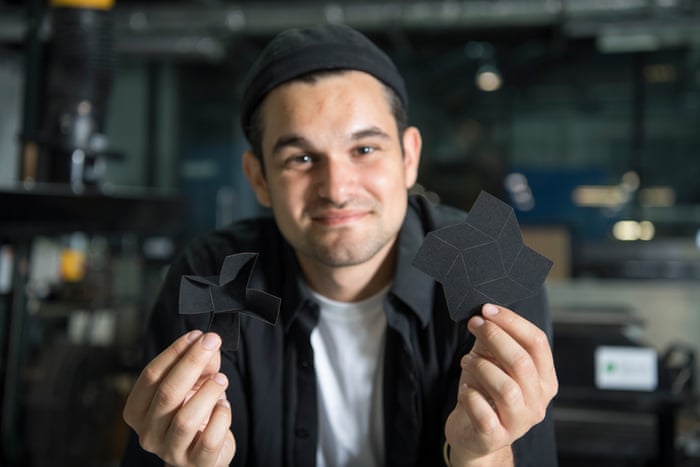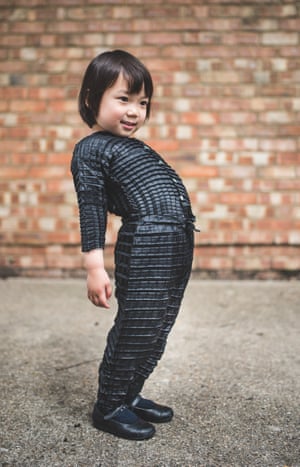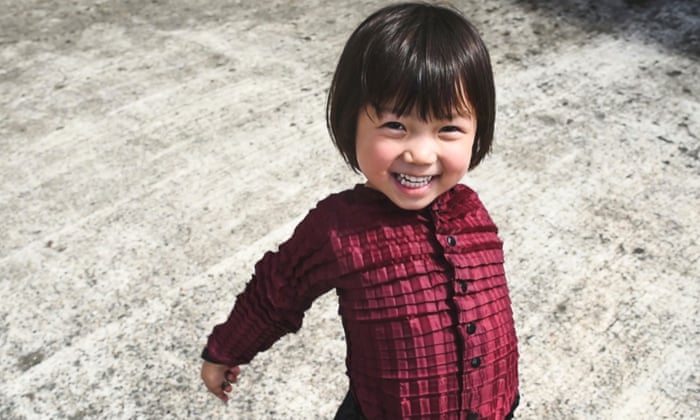London-based designer Ryan Yasin used his background in aeronautical engineering to develop sustainable clothing to fit babies through to toddlers
An origami-inspired range of children’s clothing made from a durable pleated fabric that expands to fit growing babies and toddlers has won its 24-year-old designer a prestigious James Dyson award.
Ryan Yasin devised the material using scientific principles he studied for his aeronautical engineering degree, after noting the lack of sustainability in the clothing industry and being frustrated by how quickly his baby niece and nephew outgrew garments he bought for them.
The London-based postgraduate student aims to make so-called Petit Pli “the most advanced kids’ clothing in the world”. It is made from distinctive pleated lightweight fabric which is waterproof, machine washable and recyclable, with all garments fitting the three-month to three-year age group.
Most children grow by seven sizes in their first two years, and (according to a recent survey by Aviva) parents spend an average of £2,000 on clothing before their child reaches the age of three. As well as the high cost and limited lifespan, mass production of garments places huge pressure on the environment through waste, water consumption and carbon emissions.

Yasin set out to combine technology with textiles in order to fashion durable and practical garments for youngsters to take them through their initial “growth spurt”. The babygrow, trousers and tops he has so far created resemble junior versions of sought-after clothing by legendary Japanese designer Issey Miyake.
Petit Pli works by employing the so-called negative Poisson’s ratio, which Yasin studied while at London’s Imperial College. When stretched, materials that have this ratio – known as auxetics – become thicker and can expand in two directions at the same time. The phenomenon is already used in stents and biomedical implants. Yasin has to date developed more than 500 prototypes for Petit Pli and plans to use his £2,000 prize money to continue discussions with potential investors and expand the business. Yasin says he is in talks with a major UK retailer and hopes the first clothing will go on sale in the UK within months.

“It’s just great to have that backing and recognition of my solution,” he said. “The prize money is an added bonus, but I know how I will use it. In addition to supporting my R&D, it will help me form an interdisciplinary team of experts to take Petit Pli to the next level: putting it in the hands of parents worldwide and making a tangible difference to the way we consume resources in the fashion industry.”


